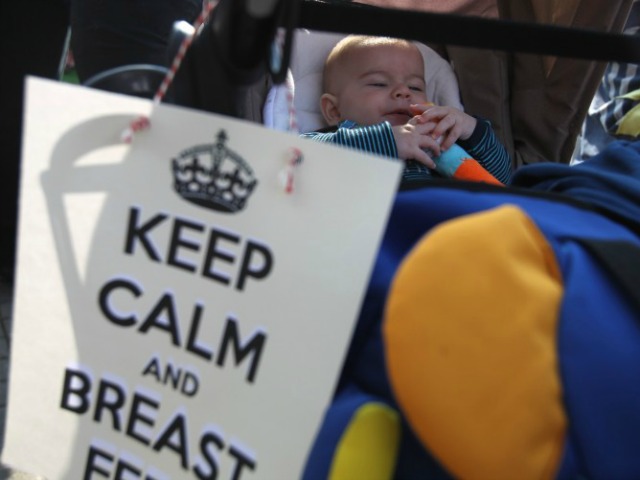A study conducted by Unicef UK asserts that if mothers breastfeed their children longer, the National Health Service (NHS) could save millions of pounds: the prevention of infections by breastfeeding would save 11 million pounds, and the plunge in cases of breast cancer would save an additional 31 million pounds.
The Department of Health said it was “absolutely crucial” that mothers be encouraged to breastfeed. The study said there was “good quality” evidence that breastfeeding could act as a preventative against infections in the gastrointestinal and lower respiratory tracts and ears in infants.
The current cost of treating the aforementioned infections is 89 million pounds per year, according to the study. The authors state that if the women who only breastfeed at six weeks, who comprise 21% of new mothers, kept breastfeeding for another two and a half months, four million pounds a year would be saved. If the number of women exclusively breastfeeding at six weeks were increased to 45% of new mothers, 11 million pounds a year would be saved.
Only 7% of mothers in Great Britain currently use breast milk exclusively at four months.
The study also stated that if the number of premature babies fed breast milk doubled, savings from the reduction in necrotising enterocolitis would save the NHS 6 million pounds per year. If one-third of mothers breastfed their children for seven months in total, 31 million pounds per year could be saved.
Far fewer mothers (34%) breastfeed for six months in Great Britain than Norway (80%), Sweden (68%), or Australia (60%).
Dr. Subhash Pokhrel from Brunel University, who led the study, said the study focused on the 45% of mothers still breastfeeding at four months because the authors deemed that a “realistic” achievement.
Rosemary Dodds, co-author of the study, said the government should increase its support for breastfeeding longer. She said, “The National Institute for Health and Clinical Excellence said women should be getting proactive support, but that is not happening all over the country, and one of the reasons is data collection – those working in the community do no know who has had a baby.”
Health minister Dr Dan Poulter said: “The health and economic benefits of breast feeding are clear and it is absolutely crucial that new mothers get support with breastfeeding. That’s why the Government has trained thousands of extra NHS midwives and health visitors in order to provide personal care to every new mum, and to help give more mums breast feeding support and advice.”
A study published in the Journal of Epidemiology and Community Health found that children who were breastfed at all scored higher on cognitive, receptive communication, and fine motor tests than children who weren’t breastfed. Children who were breastfed for more than six months scored the highest.

COMMENTS
Please let us know if you're having issues with commenting.